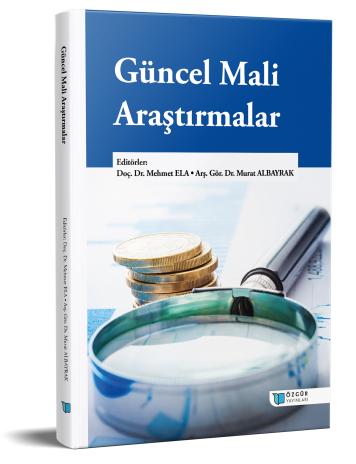
Güncel Mali Araştırmalar
İndir
Özet
Kamu maliyesi, mali olayları inceleme konusu yapan, kapsamı oldukça geniş bir bilim dalıdır. Öyle ki, kamu maliyesi başta ekonomi olmak üzere, hukuk, siyaset bilimi, işletme, sosyoloji ve psikoloji gibi bilim dalları ile ilişki içerisindedir. Söz konusu ilişkilerin bir yansıması olarak hükümetlerin kamu maliyesi konusunda aldıkları kararların ekonomik, politik ve sosyolojik birçok sonucu ortaya çıkabilmektedir. Örneğin Yunanistan’da yaşanan bir borç krizi sonucunda hükümetin aldığı kemer sıkma kararı sonucunda halk gösteri ve grevlere başvurabilmekte ya da ABD yönetimi başta Çin olmak üzere çeşitli ülkelere karşı mali bir araç olan gümrük vergilerini arttırabilmektedir. Geçmişte daha birçok benzeri örneklere rastlamak mümkündür. Bu durum hiç şüphesiz maliye biliminin sürekli olarak dünyanın gündeminde kalmasına, güncelliğini korumasına ve ülkeleri çeşitli yönleri ile etkilemeye devam etmesine yol açmaktadır. Bu anlamda “Güncel Mali Araştırmalar” başlıklı bu kitap çalışmasında son dönemde gündemde olan çevresel tahviller, enerji politikaları ve doğal afetlerin mali yansımaları, uzlaşma müessesi ve mülkiyet hakkı konularına yer verilmiştir.
Kitapta yer alan kitap bölümleri ise kısaca şu şekildedir: Doç. Dr. Mehmet ELA, “Devlet Sürdürülebilirlik Bağlantılı Tahvilleri: Genel Bir Değerlendirme” başlıklı bölümde, iklim değişikliğinin bozucu etkileri veri iken artan finansman ihtiyacı sonucunda geliştirilen yenilikçi bir ürün olan devlet sürdürülebilirlik tahvillerini incelemiştir. Arş. Gör. Murat ALBAYRAK, “Türk Devletleri Teşkilatı’nda Ekonomik İşbirliği ve Enerji Politikalarının Mali Yansımaları” başlıklı bölümde, Türk Devletleri Teşkilatı’nda yaşanan gelişmeler ve önemli bir işbirliği alanı olan ekonomik işbirliği ve enerji politikaları konuları ele alınmıştır. Öğr. Gör. Dr. Semih KURT, “Vergi Usul Kanununda Yer Alan Uzlaşma Müessesesinin Vergi Tahsilatı Üzerindeki Etkilerinin Değerlendirilmesi” başlıklı bölümde, uzlaşma müessesesinin uygulanma süreci, olumlu ve olumsuz yönleri ile vergi tahsilatı üzerindeki etkilerini ele almıştır. Dr. Hüseyin ERCAN ve Dr. Öğr. Üyesi Mahmut KÜÇÜKOĞLU, “Doğal Afetlerin Mali Risk Açısından Değerlendirilmesi” başlıklı bölümde, doğal afetlerin kamu maliyesini etkileme kanalları ile mali sonuçlarını ele almıştır. Arş. Gör. Erkam BİRSENOĞUL tarafından kaleme alınan “Mülkiyet Hakkının Türk Anayasa Tarihi İçerisindeki Süreci” başlıklı bölümde, mülkiyet hakkının gelişimi ve içeriği Türk Anayasa tarihi perspektifinden ele alınmıştır.
“Güncel Mali Araştırmalar” başlıklı bu kitabın alana ve ilgi duyan herkese faydalı olmasını temenni ederiz.

